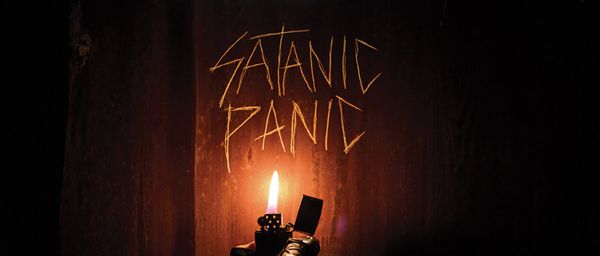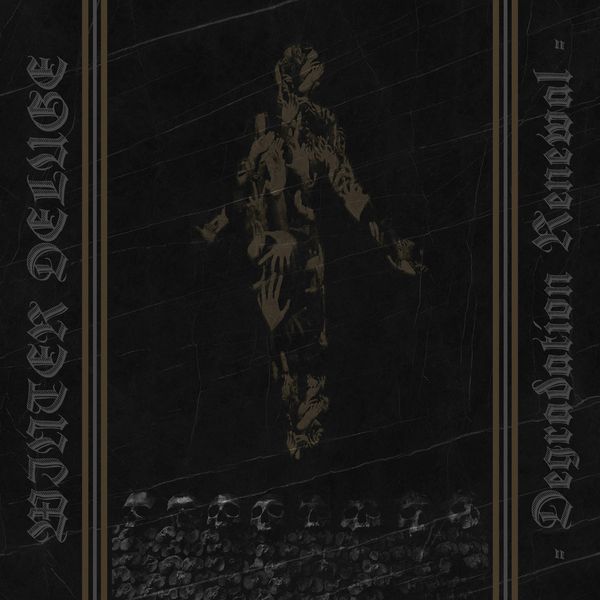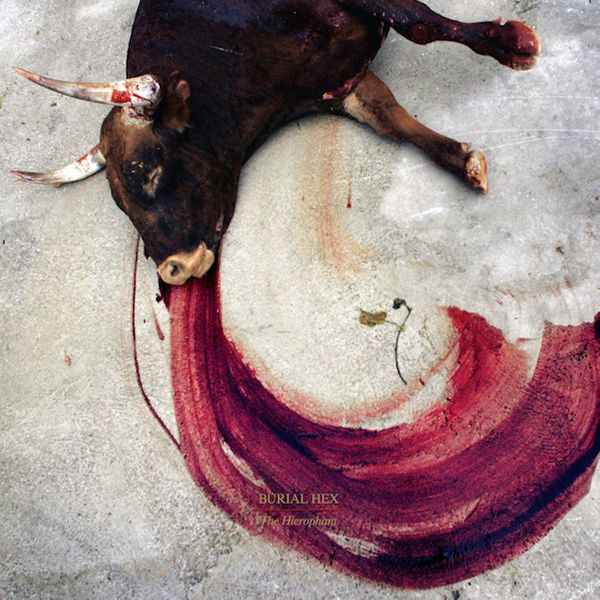Revilement—Interview
Revilement: Joe Reviled interviewed
In early December 2011, Taiwanese death metal band Revilement released their first full-length album, Pillars of Balance. A feast of blistering technical riffing and grindworthy guttural gurgles, the band’s debut was unquestionably brutal to the nth degree, yet it also retained a welcome sense of clarity.
All the intricacies and fluidity of the band could have been choked by their outright viciousness, but Revilement were smart enough to leave plenty of room in the mix. It’s one of the album’s finest attributes. And the group’s use of off-kilter, complex riffing, breakneck and mid-tempo pacing, and plenty of versatile percussion, revealed an underlying substratum of progressively inclined chaos. Pillars of Balance is smart, and among all the usual trappings of savagery there lurks an ingeniously creative pulse that demands to be heard. If you’ve not checked the album out, I suggest you do, immediately. It’s big, it’s quarrelsome, and it’s fucking furious.
Since the album’s release, Revilement have been on the road. With a stack of touring and festival shows throughout Asia behind them, 2012 looks set to be another busy year for the Taipei-based four-piece. I count myself fortunate to have been able to get some questions through to Revilement’s Canadian vocalist, Joe Reviled.
Firstly, thanks for taking the time to answer a few questions, Joe. I know it’s a busy time for you and the band.
Thanks a lot for taking the time to interview us. We’d much rather be busy than bored.
For readers who aren’t familiar with Revilement, can you give me a little background and history to the band?
Revilement actually began as a band called Almost Human about seven years ago, before I joined. It didn’t become Revilement until around five years ago when Almost Human lost their singer and I came into the fold. We started off playing a mix of old school death metal and grindcore, but some more lineup changes in the ensuing years has shifted our sound toward the brutal death metal style we’ve settled into today. So far, we’ve released a demo called Locusts, which we put out in early 2007, an EP called Human Vivisection which came out in 2009, and most recently we released our first full length album, Pillars of Balance, which came out at the end of 2011
What’s your impression of the reaction so far for Pillars of Balance?
So far, so good. I’ve come across a handful of reviews online and they’ve been very positive. Hopefully that trend continues.
How was the recording process? Were you able to dedicate a set period of time to write and record, or was it a case of finding time around all of life’s other interruptions?
Most definitely the latter. Since we all have day jobs recording has to be done on nights and weekends. It’s obviously not ideal. It would be best if we could just book a two or three week stretch in the studio and hammer out the album in one go. But we have to conserve what little time off we do get from work for touring. So, we’d record for a while, then have to put it on the back burner when other things in our lives or shows would come up, then go back to recording again. All in all, it took several months to record the album, but we’re happy with how it came out. It’s a good introduction to our sound and style.
Do you see any great stylistic change from 2009’s Human Vivisection EP? Or is the album more a refinement of the musical parameters you’ve set in place for the band?
I think it’s a direct continuation of the sound we set out to pursue on the *Human Vivisection *EP. We decided back when we recorded the EP that brutal death metal was the sound that suited us all best, with a few grooves and old school touches thrown in as well, and we’ve just run with that ever since. We never want to get too deep into any one facet of our sound and become predictable, so I think you’ll hear more variation on the full length than you can hear on the EP, but other than that it’s just the next logical step in our slow evolution as songwriters and performers.
Pillars of Balance is brutal, seriously brutal. Is that a reflection of various bands that you’ve all been influenced by? Were you perhaps thinking, “If we could be as brutal as…” Or has Revilement just developed towards that level of brutality naturally?
It’s mostly been a natural progression, in my opinion. Of course we have our influences, but I think that if you’re always saying ‘We have to be as brutal as band A or as technical as band B,’ you’ll just drive yourself insane. We’d rather just be a band unto ourselves and worry about writing songs that we enjoy playing rather than be concerned with keeping up with what other bands are doing. I think if we did do that, we’d just end up being a clone of one of our influences, which is something we definitely want to avoid. We want to be relevant and original, first and foremost.
Can you tell me a little about what the metal scene is like in Taiwan these days? Chthonic seem to be the most visible band on the international stage, at least at present, but any cursory investigation into Taiwanese metal would suggest the scene is healthy and thriving? How do you feel that metal is perceived (and responded to) in Taiwan?
The metal scene in Taiwan is small, but definitely thriving, as you say. For the size of the country, there are a considerable amount of metal bands here, with more and more popping up all the time thanks in large part to the continued success of Chthonic on the international stage. Metal is definitely well received for the most part in Taiwan, and is actually quite accepted across a broad spectrum of society because many people, from young people to senior citizens, realize that Chthonic is doing positive things through metal to promote Taiwan as a country and culture as they tour the world. Of course, not everyone in Taiwan gets it, but I can definitely say it’s a very unique and dynamic scene that is making great strides every day, and that is consistent with the growing number of international acts that are choosing to come and play here each year.
Obviously a global interconnected world makes the sharing and discovering of new metal easier, but it also has its downside. Over-saturation and torrents of sub-par metal can obscure the good stuff. How do you see Revilement’s position in that world? Is it difficult being based in Taiwan, or do you feel you can reach out to your fans from anywhere?
As far as our position in the world, I’m not really sure. I would hope that we’re beginning to put Taiwan death metal on the map, but I know that will likely be a very gradual process, and we’re well prepared to put in the time and road work that will require. It’s now easier than ever to reach out to people online, but I don’t think that will ever replace getting out on the road and playing live in terms of making real connections with our audience. I don’t think it’s any more difficult being based in Taiwan than it is being based in any other part of the world, remote corners of the Amazon and Tibetan mountain ranges notwithstanding. There’s no magical land where it’s easy to make a name for yourself as an underground death metal band. As far as touring in Asia, I would actually say being in Taiwan is a bonus, as it’s quite easy and relatively inexpensive to take weekend trips from here to a great number of surrounding countries to play shows.
You’ve managed to get a fair amount of touring done over the last few years, with festival gigs (and your own shows) in Korea, Japan, Hong Kong, Singapore and Bangkok. And I see you’ve plans for more touring around the Asian region in 2012 . Is it important for the band to get out there and play as much as you can?
It’s absolutely vital to get out there and play outside your own scene as much as you can. That’s the only way you can truly find out how you match up against the best other scenes have to offer, and there’s no substitute for the personal connections you make with your fans and friends when you head out on the road and bleed and sweat and rage with people in different places. So that’s why we’re always planning ahead and looking for new places to play outside Taiwan, and why we bleed our bank accounts dry to get out there and make a name for ourselves. We love it, and wouldn’t have it any other way. There’s nothing else in the world like going out on tour.
Playing extreme metal will not make you wealthy, so I’m always hugely impressed with bands like yours that tour internationally. I’ve always felt that metal fans from the Asia/Pacific region are a deeply passionate bunch, perhaps because so few bands tour here. But how do you find the crowds? Is there a huge difference from crowds at home?
I wouldn’t say there have been any huge differences that I’ve observed in the countries we’ve played so far. Everywhere we’ve gone in Asia, the fans have always been incredibly passionate and responsive, perhaps because, as you say, there really isn’t a huge amount of bands that do commit to touring regularly in this part of the world. So, when a band does head out, people really do show their appreciation. Metal heads in Asia perhaps aren’t as jaded as those in North America and Europe because shows in Asia featuring international acts might only happen a handful of times a year, with Japan being the exception to that. So, when it does happen, it’s a huge event, and the fans want the bands to go home and tell all their friends in metal bands that they have to come out here and check out the insane fans in Asia. That’s why they lose their minds at shows out here. I’m always impressed by the dedication of the fans each time we play somewhere that’s new to us out here.
Aside from promoting the band, what do you personally get out of visiting different nations and experiencing different cultures?
The most valuable thing I get out of travelling and playing is a chance to meet some great people in new locales and forge lasting friendships with a great many people who come out to our shows. It’s an amazing feeling to know that there are people in a lot of different cities in the region that I could contact on a day’s notice and likely have a place to crash for the night if I was in town, and I would do the same for them. I have just as good a time hanging out with the metal heads in the various cities we play in as I do when we play the show. It’s great to talk about music, their respective scenes, and just life in general with these people and gain a new perspective that I likely wouldn’t have if I just stayed home all the time.
Getting back to the album, did you have any specific themes you wanted to express on Pillars of Balance? I guess with the world being what it is there’s no shortage of inspiration?
Speaking in broad thematic terms, the album revolves around humankind’s continued descent into chaos, war, poverty, misery, and eventually oblivion, and the abject need for the failing institutions we have built up in the course of our existence to fall in order for us to salvage any remote chance we might have of slowing our inevitable demise. There is definitely no shortage of inspiration on this topic these days, especially for a news junkie such as myself. Lyrically speaking, I could probably spend my entire career writing about this. Every day I get new ideas for song titles and lyrics just by perusing the news sites.
You’re a multicultural band. Does that play into your sound at all? Do you see it as being advantageous to have a wider spectrum of experience and cultural identities at play?
I don’t think it really plays into our sound that much, at least not on any level that we’re conscious of. But it may be an advantage that we don’t all come from the same place on a cultural level, because it does add some nuances to the way we interact with one another creatively. Granted, I’m the only one in the band who is not Taiwanese, but I think a band comprised entirely of Taiwanese members would interact differently in the creative process than a band such as ours with three Taiwanese and one Canadian. It’s definitely not a hindrance to have some different cultural perspectives within the group. I think it might add some musical diversity.
What do you foresee as the future of Revilement. Do you have an end goal in mind? Or is it to just keep playing death metal till your knees, voice or neck finally give-out?
Eventually all things run their course, but we want to keep doing this for as long as we can. When it will all come crashing to a halt is anybody’s guess, but we have a group of guys that understand the realities of playing this kind of music, and are in it for the right reasons and are dedicated to pursuing our vision for the long haul. Most of my favorite bands these days are getting into their forties, so if I could continue making music with Revilement until I’m also at that age, I would be happy. There is no end goal—only to keep pushing forward musically and to take our music to as many places as possible. As long as we’re not stagnating, we will continue.
You’ve obviously had a chance to play with plenty of other great metal bands as you’ve toured about the region. Care to share a few you’ve enjoyed, or more to the point, who do you recommend we should be checking out?
There are a lot to name, but here are a select few we really enjoy:
Defiled (Japan), Hydrophobia (Japan), Deaflock (Japan), Down from the Wound (Philippines), Pus Vomit (Philippines), Jasad (Indonesia), Masquerader (Taiwan), Bloody Tyrant (Taiwan), Anthelion (Taiwan), and Bazooka (Taiwan), just to name a few.
Joe, thanks again for taking the time to answer these questions. Any final words you’d like to throw out there for fans—or for those who have yet to be swept up in Revilement’s whirlwind?
Thanks to everyone who has supported us along the way, and if you’ve never heard of us before, and it’s highly likely you haven’t, you can follow us on Facebook or get in touch through our website, Revilement.com. Cheers again for the interview. See you all on the road!




